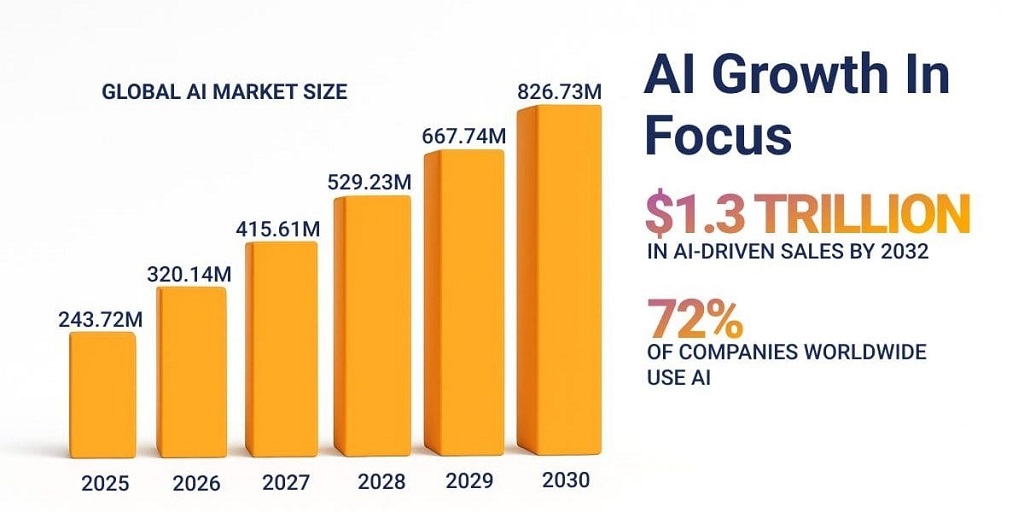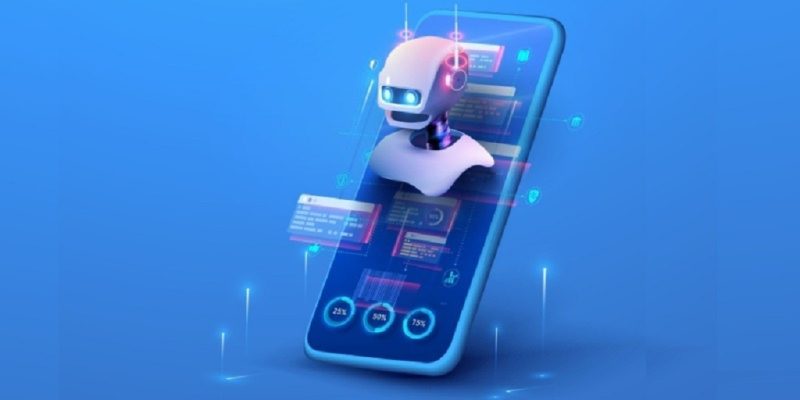Artificial Intelligence (AI) is no longer just a futuristic concept—it’s reshaping how apps are designed, built, and used today. As we enter 2025, AI is driving unprecedented innovation in app development, making it faster, smarter, and more cost-effective. From code generation to personalized user experiences, AI has become a cornerstone of the digital economy. But with rapid growth come new challenges—particularly around law, compliance, and ethics.
This article explores AI use cases in app development, reviews growth statistics for 2025, and outlines key legal considerations for businesses and developers.
The Rise of AI in App Development
The evolution of AI in app development has moved from simple rule-based automation to powerful generative models capable of writing code, designing interfaces, and predicting user behavior.
Key Factors Driving Adoption
- Efficiency: AI reduces development time by automating repetitive tasks.
- Cost-effectiveness: AI tools streamline testing, debugging, and security checks.
- Personalization: Users now expect tailored experiences powered by AI insights.
This transformation isn’t purely technical. Legal and ethical questions—such as ownership of AI-generated code and accountability for biased outcomes—are shaping how AI is adopted in 2025.
Key Use Cases of AI in App Development

1. Intelligent Code Assistance
Tools like GitHub Copilot, ChatGPT, and Tabnine allow developers to generate, autocomplete, and debug code in real time. This speeds up development and reduces human error.
Legal note: Since AI models are often trained on public code, there’s potential for copyright infringement. Developers should adopt policies that clarify how AI-generated code is used.
2. Personalization and User Experience
AI helps apps learn from user behavior, delivering customized recommendations in e-commerce, streaming, education, and fitness platforms. Natural language processing (NLP) powers smarter chatbots, while recommendation engines drive engagement and retention.
Legal note: Personalization depends on user data, so developers must comply with privacy regulations like GDPR and CCPA.
3. Automated Testing and Quality Assurance
AI can predict bugs, generate test cases, and automate regression testing—helping teams launch faster while maintaining reliability.
Legal note: If AI testing fails to catch flaws, liability may fall on developers. Contracts are increasingly defining accountability for AI-driven testing errors.
4. Enhanced Security
AI helps detect fraud, malware, and suspicious activity in real time, making it essential for fintech and healthcare applications. AI-based systems adapt faster than traditional tools, strengthening cybersecurity.
Legal note: Because AI security models often function as “black boxes,” regulators may require explainability to ensure accountability.
5. Predictive Analytics and Business Insights
Enterprise apps now include predictive analytics for demand forecasting, churn analysis, and financial modeling. AI insights enable faster, data-driven decisions.
Legal note: If inaccurate AI predictions cause losses, liability may arise in contracts between developers and clients.
Growth Statistics for 2025
- The global AI in software development market is projected to exceed $180 billion by 2025, growing at a CAGR of over 30%.
- By 2025, more than 75% of new enterprise apps will integrate AI-driven features.
- Fintech and healthcare lead adoption, with AI-powered apps in fraud detection and telemedicine expected to double in market size.
- Asia-Pacific is growing fastest, driven by investments in AI hubs across China, India, and Singapore.
- Job reports from LinkedIn and Indeed show a 40% annual increase in demand for AI and machine learning engineers since 2023.
These figures highlight a fundamental shift in how apps are conceived, developed, and deployed.
Legal and Regulatory Challenges
While AI’s growth is exciting, the legal framework is still evolving. Developers, companies, and legal professionals must monitor several areas:
- Intellectual Property: Who owns AI-generated code or designs—the developer, client, or AI provider?
- Data Protection: AI systems rely on user data, requiring strict compliance with GDPR, CCPA, and similar laws.
- Liability: If an AI-driven app causes harm (e.g., a misdiagnosis in healthcare), responsibility must be defined.
- Emerging AI Regulations: The EU’s AI Act and upcoming U.S. state laws are expected to reshape compliance in 2025.
Early collaboration between developers and legal teams is key to drafting compliant frameworks and contracts.
Future Outlook
- Low-code and no-code platforms will use AI to empower non-developers to build apps.
- Generative design tools will create entire user interfaces from text prompts.
- AI governance frameworks will become mandatory in several regions.
- Cross-disciplinary teams—lawyers, developers, and ethicists—will collaborate to align innovation with regulations.
The companies that thrive will be those balancing innovation with accountability.
Related Topic: Use TikTok for E-Commerce
Conclusion
AI is transforming app development in 2025. From generating code to detecting cyber threats, its potential is massive—but so are the risks if legal and ethical considerations are ignored. Developers can build smarter, faster, and more personalized apps, but they must do so within frameworks that respect intellectual property, privacy, and regulation.
Call to Action
If you’re a business leader, developer, or legal professional, now is the time to prepare. Invest in AI tools, but also build compliance strategies and seek legal guidance on intellectual property, liability, and data protection. The future of app development is AI-driven, and those who act responsibly will lead the way.
Related Topic: Gigabyte BIOS FCLK Settings
FAQs: AI in App Development 2025
1. How is AI used in app development?
AI is used for code generation, testing, personalization, cybersecurity, and predictive analytics. It makes development faster, more efficient, and user-centered.
2. What industries benefit most from AI-powered apps?
Healthcare, fintech, retail, and education are leading adopters, though AI is spreading across all industries.
3. What legal issues should developers watch out for?
Key concerns include intellectual property ownership of AI-generated code, data privacy compliance, and liability for AI-driven errors.
4. Is AI replacing developers in 2025?
No. AI assists developers by automating routine tasks, but human oversight, creativity, and ethical judgment remain essential.
5. What growth can we expect in AI app development by 2025?
The market is expected to exceed $180 billion, with AI adoption accelerating across industries and regions.

